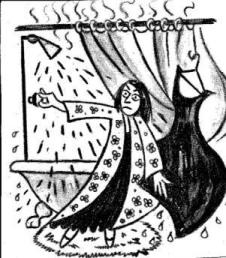February 28, 2015
Since two of my successors, Murray’s second and third wives, will be present at the dinner in his honour, I thought I should make an appearance tonight, if only in words, to wish him Many Happy Returns on this very important milestone, his 70th year.
Many thanks, Steffi, for including me. But you have always been a most inclusive daughter. Perhaps you take after your father in this regard.
Last summer Laila and Chloe and I were swimming off the big rock on our island at Charleston Lake and, for some reason, the subject of Pops, their name for Murray, came up. I had never discussed their grandfather with them before and they were obviously quite fond of him. It was Laila who asked the questions while Chloe listened.
“Nana, do you like Pops?” she asked out of the blue. ‘Why yes, Laila, I do,” I answered. “Of course.”
“Do you like him better than Edgar?” came the next question. There was a pause as I sought to gather my thoughts.
“Well no, Laila. Edgar’s my husband now. But Pops used to be my husband and I used to like him quite a bit.”
“I know,” said Laila. “Why isn’t he still your husband?”
Completely flummoxed this time, I mumbled something about Pops and me being able to be friends but not being a good husband-and-wife team.
“Then why did you marry him in the first place?” asked my persistent granddaughter, blissfully unaware of her grandparents’ 1966 shotgun wedding almost a half-century ago.
Fortunately I was able at this point to divert the conversation into other rather more fascinating subjects, such as the possibility of a snake-sighting nearby.
But looking back on the conversation I found it fairly endearing that Laila and Chloe too, I suppose, were bent on getting their two grandparents back together. I am very grateful that, despite the unlikelihood of this, they continue to love us both.
So Happy 70th, Murray, and you should be proud of all of your wonderful family gathered around you to pay you tributes tonight. They are very well-deserved.


